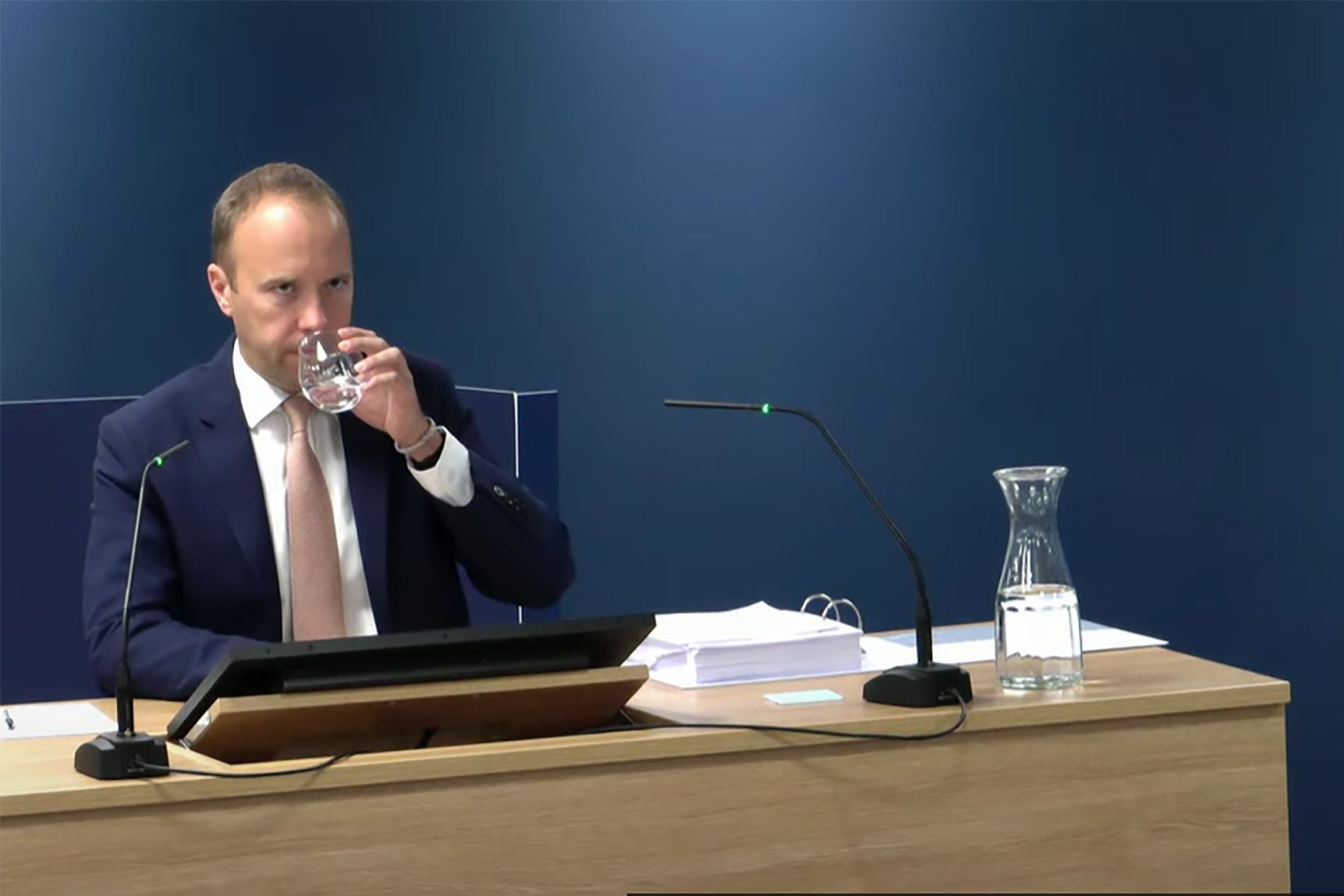Councils ‘simply do not understand’ evidence given by Matt Hancock, inquiry told
A barrister for the Local Government Association said it does not believe a suggestion only two councils had plans for pandemic flu to be accurate.

Your support helps us to tell the story
From reproductive rights to climate change to Big Tech, The Independent is on the ground when the story is developing. Whether it's investigating the financials of Elon Musk's pro-Trump PAC or producing our latest documentary, 'The A Word', which shines a light on the American women fighting for reproductive rights, we know how important it is to parse out the facts from the messaging.
At such a critical moment in US history, we need reporters on the ground. Your donation allows us to keep sending journalists to speak to both sides of the story.
The Independent is trusted by Americans across the entire political spectrum. And unlike many other quality news outlets, we choose not to lock Americans out of our reporting and analysis with paywalls. We believe quality journalism should be available to everyone, paid for by those who can afford it.
Your support makes all the difference.Evidence given to the UK Covid-19 Inquiry by Matt Hancock has been called into question by local councils, which insisted his former department had “far more levers” to oversee social care provision than he suggested.
A barrister representing the Local Government Association and Welsh Local Government Association said his clients “simply do not understand” the evidence the ex-health secretary gave to the inquiry.
Last month, Mr Hancock told inquiry chairwoman Baroness Heather Hallett that adult social care was in a “terrible” state of pandemic preparedness, with the Government lacking basic knowledge, including how many care homes were in the UK at the time when the coronavirus struck.
My clients simply do not understand the evidence of former secretary of state for health, Mr Hancock, who stated that only two councils had plans for pandemic flu, a suggestion they do not believe to be accurate at all
He said that by January 2020 the department he headed up – which he accepted meant he had responsibility to ensure “adequate oversight” for planning and preparedness for a health emergency – did not have a plan in place to identify how many people were in the care sector.
But the MP said the responsibility for ensuring pandemic preparedness in the sector “formally fell to local authorities” – and while he was accountable through his role as secretary of state for health and social care he “didn’t have the levers to act”.
He described the system for running adult social care as “flawed” and said it was in “nowhere near good-enough shape” when the pandemic hit.
He also said he asked to see the pandemic preparedness plans he understood local authorities were required to have in place, and that social care minister Helen Whately “found that there were only two”, which were “wholly inadequate”.
On the final day of the module one hearings, which are focused on resilience and preparedness, Robin Allen KC suggested his clients disagreed with Mr Hancock’s comments.
They (councils) believe the department (of health and social care) had and has far more levers to understand, oversee and to shape social care provision than his evidence suggested
During closing statements on Wednesday, he told the inquiry: “My clients simply do not understand the evidence of former secretary of state for health, Mr Hancock, who stated that only two councils had plans for pandemic flu, a suggestion they do not believe to be accurate at all.”
Mr Allen said: “And similarly they believe the department had and has far more levers to understand, oversee and to shape social care provision than his evidence suggested.
“To find out the extent of adult social care provision, all he had to do was to speak to the Care Quality Commission with which providers must be registered, or with directors of Adult Social Services, who commissioned care services.”
In future, Mr Allen said local government should be “at the core of all future resilience planning” and “must be treated as a trusted and equal partner by central government”.
He added: “Local government preparedness has been impacted by austerity but this cannot be allowed to occur again.”
Anne Studd KC, for the Cabinet Office, told the inquiry “significant” reforms had been made in terms of resilience, which give “new leadership, focus and direction and go well beyond the Cabinet Office’s traditional role”.
She said: “Resilience issues will remain at the top of the agenda and the system will remain accountable to Parliament and to the public.”
Concluding the module, Lady Hallett paid tribute to all those involved, from lawyers to the public who attended the hearings, and the bereaved who she said had “acted with great dignity”.
The report from module one will be published “as soon as possible”, with an aim for early summer 2024, the chairwoman added.
“If we could do it any quicker obviously we will, but given the amount we have to go through we’ll have to see,” she said.
Module two hearings, focused on core UK decision-making and political governance, are due to take place in October.